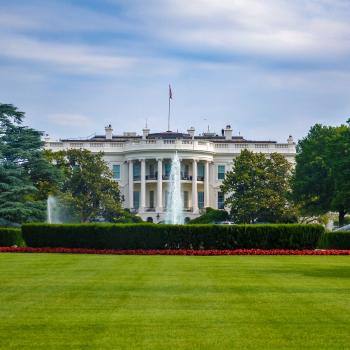
In an article last week at The Federalist, Lewis Andrews argued that, as the headline read, “Just Like Freud’s Psychoanalysis, Critical Race Theory Will Ultimately Collapse.” The demonstration of the thesis proved a little less ambitious than the headline suggested. The basic argument of Andrews is that psychoanalysis was a popular fad, so too is Critical Race Theory (CRT). Therefore, the latter is doomed to the same fate as the former.
Briefly recounting recent history of the ascendency of the woke, Andrews writes,
What binds and fortifies the self-declared woke is a cynical academic philosophy known as “critical race theory.” Refined over decades from deconstructionism through political correctness to identity politics, it falsely brags to be the first to discover that the human mind can never know anything for certain.
So, having declared a limit to knowledge, critical race theory proceeds to assume that all cultures, no matter how noble they may appear, are inventions of the dominant power structure designed to keep other groups in line. Even in the United States, critical race theory insists, long-held beliefs in limited government, free markets, and the importance of family are simply camouflage for male privilege and the suppression of racial minorities. To be truly enlightened, the theory concludes, one must relentlessly denounce these and any related values.
Despite the shocking meteoric rise of CRT and its present (seeming) ubiquity, Andrews implores the reader not to panic. “We’ve seen this before.” But the “this,” for Andrews, is not the early manifestation of critical theory at the Frankfurt School for Social Research in the early twentieth century or even Marxism itself, but rather the “social theory” of Sigmund Freud. Andrews rightly notes the popularity of Freudian psychoanalysis in the late nineteenth century, especially amongst the intelligentsia and the affluent (per usual).
The essence of Freud’s thought, on Andrews’ reading, was his claim that
emotionally disturbed patients experience symptom relief while sharing uncensored dreams and word associations, it argued that every person was motivated by desires, drives, and needs that were repressed in childhood.
Promising the kind of authority that could be claimed by anyone with a knowledge of humanity’s “real motivations,” Freud’s ideas were quickly taken up by a variety of groups, both inside and outside of medicine, to advance their interests. This was especially true of the media, which regularly sought the opinions of psychoanalysts to give their magazine, newspaper, and broadcast reports credibility.
By the 1960s, Freudian ideas were being peddled by “countercultural gurus” to justify social change unto sexual libertinism. (Andrews neglects to mention the role of Herbert Marcuse in the first round of the sexual revolution.) “The result was nearly a decade of epidemic drug use, campus rioting, and cultural attacks on traditional morality.”
For a time, then, Freudianism enjoyed cultural purchase.
While Freud’s psychoanalytic theory always had its share of thoughtful critics, defenders of the theory often resorted to a tautology-ridden, woke-like defense: anyone who challenged Freud was said to be denying his own unconscious conflicts and was, therefore, to be ignored.
What led to its eventual collapse, per Andrews? It could not deliver on measurably improved mental health. It, therefore, lost economic viability.
Beginning in the 1990s, as pressure grew on health insurance companies to pay for psychological problems as well as physical ones, efforts were made to more rigorously evaluate the different therapies… Psychoanalysis thrived for nearly a century as an intellectual justification for a multitude of movements, but it couldn’t survive the failure to deliver on its foundational promise: improved mental health.
By analogy, Andrews predicts that CRT will fail to deliver on its promise of improving the lives of ethnic minorities in the United States.
Doubtless, Andrews’ account contains truth. The problem is that his scope is too narrow, his account of Freud’s influence truncated, his conception of Freud’s central ideas selective.
Further, his identification of CRT’s promise misunderstands the ideology and aspirations of the theory itself. It is nothing so simple as he suggests. Rather, the final ambition of CRT is liberation through cultural and institutional overhaul. Indeed, improving the lives of ethnic minorities in America is considered impossible by CRT proponents within the existing western cultural context, which they believe was constructed from the ground up for nothing other than the purpose of the marginalization and subjugation of people of color, women, sexual non-conformists, religious minorities, disabled persons and etcetera, so that, in turn, able-bodied, white, cisgender, heteronormative men could dominate. There is nothing redeemable, no possibility for improvement— any incremental progress constituting mere interest convergence— within the status quo. The warriors of critical social justice are not promising improved lives according to the metric implicitly affirmed by Andrews. They are pursuing radical, structural, and cultural revolution.
Neither will demonstrable failures— which, again, would be wrongly predicated on the basis of Andrews’ standard of proof which would be cast by any CRT’er as hampered by white, male, western assumptions— precipitate CRT’s demise.
Andrews argues that a Milton Friedmann-esque school choice policy presents the best path to better lives for minorities. (It is strange, given that this is the only counter example that Andrews provides to contradict woke social policy, that he does not mention the 1619 Project curriculum ripping through primary schools right now.)
… more than 150 studies have shown that the minority children who have participated not only score as well academically as their white peers academically but are just as likely to graduate high school, go to college, and graduate with a degree. Equally impressive is the fact that minority participants report far fewer problems with prejudice or discrimination.
How long the woke of today can remain oblivious to what truly improves the lives of racial and ethnic minorities likely depends on how long it will take the growing number of Friedman-like programs to become widely noticed.
A Friedmann-inspired school choice policy may be good for Americans, black and white. I am not competent to comment on its merits. What I do know is that win, lose, or draw, the disciples of CRT will not be deterred by this kind of argument, viz., that their ideologically driven policy proposals are not viable but libertarian economics can deliver in a concrete way for minorities. The brilliance of CRT dogma is that any failure is pinned on the enemy itself. The reason that something like race-based jury nullification, the abolishment of police, the retroactive exoneration of convicted felons, or reparations do not gain traction is because of the stranglehold that the white hegemony has on public policy. Even if a pet project of BLM or Ibram Kendi’s antiracist center at Boston University made it through the legislature, any shortcomings, any failure to deliver on measurable life improvements would be conspiratorially chalked up to white sabotage. Plus, with CRT, it is all or nothing. Reparations alone will not suffice. The full litany of policy demands (see e.g. M4BL’s policy program) must be enacted at once! Accordingly, Andrews’ prediction vis a vis CRT, as welcome as it would be, is specious at best.
Before moving on, an ancillary prediction by Andrews, stated in his closing paragraph, is also questionable. “Few seem to have any idea just how much a GOP victory, then, would jeopardize the viability of wokeness.” He says this because Republicans are presently backing school choice, which, again, Andrews thinks could singlehandedly usher in CRT’s demise. It is the silver bullet. The school choice issue aside, it is likely that a Trump victory in November will only backfire in this regard.
As Cathy Young has fairly and, in my mind, sufficiently argued, the recent Trump ban of CRT in federal training programs will, and has, thrown gas on the fire, to the detriment of those of us worried about CRT. In short, though Trump and the OMB may be right, on principle, in going after CRT, they are the wrong messengers. The issue will only become more partisan from here on out, if such a thing can be imagined. (Young’s longform assessment at Arc Digital is worth reading in its entirety.)
In a recent interview with The Atlantic, Ibram Kendi made sure to point out that a Trump loss next month would not signal the end of racist America. Rather, it has the potential to make matters worse because, absent the big, bad, orange man, the liberal post-racism narratives would be revived. If you are familiar with CRT literature then you know that liberal myths and values (e.g. equality, race neutrality, the rule of law, etc.) endemic to the post-racism story. This story is dangerous because it muddies the waters. With a veneer of equality, it covers the true racial inequity inherent in every element of western society.
Kendi, who wants to convince all of us that there is no neutrality in the race discussion— there is no category of “not-racist,” only “racist” or “antiracist,” the latter requiring active dismantling of the white hegemony— and his CRT brethren are probably (in the long run) more leery of a Biden win in November than they are a Trump one. A second term for the incumbent would ensure continued ramping up of racial tensions in America. For CRT activists, like their Marxist predecessors, the internal contradictions of western society can only be brought to the point of fissure by conflict. Incremental change will never do. Chaos and political strife are growing pains.
Marx argued that any attempts to diminish class conflict was only ever the work of the capitalist class, motivated by “anxiety that the proletariat, under the pressure of its revolutionary position, may go too far.” Therefore,
While the democratic petty bourgeois want to bring the revolution to an end as quickly as possible, achieving at most the aims already mentioned, it is our interest and our task to make the revolution permanent until all the more or less propertied classes have been driven from their ruling positions, until the proletariat has conquered state power and until the association of the proletarians has progressed sufficiently far – not only in one country but in all the leading countries of the world – that competition between the proletarians of these countries ceases and at least the decisive forces of production are concentrated in the hands of the workers. Our concern cannot simply be to modify private property, but to abolish it, not to hush up class antagonisms but to abolish classes, not to improve the existing society but to found a new one.
This same drive for permanent revolution is deeply imbedded in contemporary critical theories, especially CRT. Any attempt at concession will fail. Any failure of the revolution itself will only further illustrate the necessity of revolution. The goal is complete overhaul, not incremental, measured societal improvement. In the transition period prior to the emergence of the final phase of history, “nothing but the revolutionary dictatorship of the proletariat” will suffice to guide us through the intermediate chaotic state— the chaos, of course, being instigated by the proletariat itself.
Returning to Andrews’ prediction:
First, contra Andrews, Freud won. Though Tony Robbins may not be peddling psychoanalysis, the real, central contentions of Freud are not dead. Rather, they continue to animate the logic and convictions of the sexual (and moral) revolution. As Carl Trueman expertly shows in his forthcoming (November) book, The Rise and Triumph of the Modern Self, Freud’s psychologizing of sex—later politicized by Herbert Marcuse and Wilhelm Reich— is the basis of recent cultural shifts in sexual ethics. The triumph of transgenderism is the triumph of Freud. The psychological theories of the father of psychoanalysis may be roundly rejected today but that fact does not negate Freud’s true influence.
Freud’s work coincided with an inward turn, the emergence of Philip Rieff’s psychological man, as well as the erosion of a static conception of human nature. These two changes allowed for man to become master of his own nature via psychological self-dictation. The mind, its desires, instincts, and impressions, became both the ultimate authority as well as the singular gage for well-being. Here man’s sexual impulses were centered, made constitutive of his identity and health. Anything that stifles these impulses and psychological sense of self (e.g. monogamy, chastity, heterosexuality) are arbitrary, unnatural, bids for power, thus worthy of overthrowal. And, you know the rest of the story.
(As a side note, it could also be added that the greatest intellectual phenomenon of the past several years, Jordan Peterson, is an unabashed Jungian. Surely Freud and psychoanalysis cannot be all that dead, then.)
Second, Freud’s legacy endures in critical theory itself (indisputably the philosophical foundation of the New Left). (On the Frankfurt School’s use of Freud, see Joel Whitebook’s chapter “The Marriage of Marx and Freud: Critical Theory and Psychoanalysis,” available here.) Erich Fromm’s comparative analysis in Beyond the Chains of Illusion provides a look into how the Frankfurt Schoolers fused Freud and Marx. Fromm’s and his comrades, Horkheimer and Adorno, were arguably the first to take Freud seriously in social theory.
Granted, there is less talk of Freud amongst contemporary critical theorists. The gaps in neo-Marxist theory, which serves as the base of critical social theories, formerly filled by Freud are now, more or less, plugged by postmodernist theory, viz., Foucault and Derrida.
But as Trueman recently pointed out in a webinar for Faith and Law, the need to dismantle western sexual mores lead Marcuse and Reich to attack the western proscribed nuclear family (as Black Lives Matter phrased it in their statement of belief on their website prior to it being scrubbed). The root idea is derived from Freudian insights taken up and politicized (made actionable; hung on a political framework) by Marcuse and Reich— Freud may have had theories about society and man’s place therein (e.g. Civilization and its Discontents) but he championed no real societal program. The point is that Freud’s influence both within and without critical theory may be underappreciated, but it is nevertheless there. Freud is not dead. The melding of Marx and Freud provides the theoretical basis for today’s identity politics, sexual and racial alike.
Freud’s lasting influence is not found in psychoanalysis but in his contribution to the reimagining of the self, which was later politicized by his more radical, Marxist disciples. Arguably, no one has molded the modern sexual ethic and conception of the self more than Freud. Even if the methods and more outlandish, speculative claims of today’s antiracist gurus are eventually cast aside, the analogy of Freud asserted by Andrews predicts (contra Andrews himself) that their legacy will endure, perhaps through completely and irreparably altering both ideas of human nature and the national conversation surrounding race. Furthermore, insofar as critical social theories are an emanation of Marxism, Yoram Hazony has sufficiently (in my mind) made the case for the temptation of Marxism as the perennial struggle of liberal societies (see also Ryszard Legutko’s The Demon in Democracy which I’ve mentioned here at TCC before). What we are witnessing is much more than a fad. Freud’s place in history tells us this much.
Image credit: @aridely88/Unsplash
















